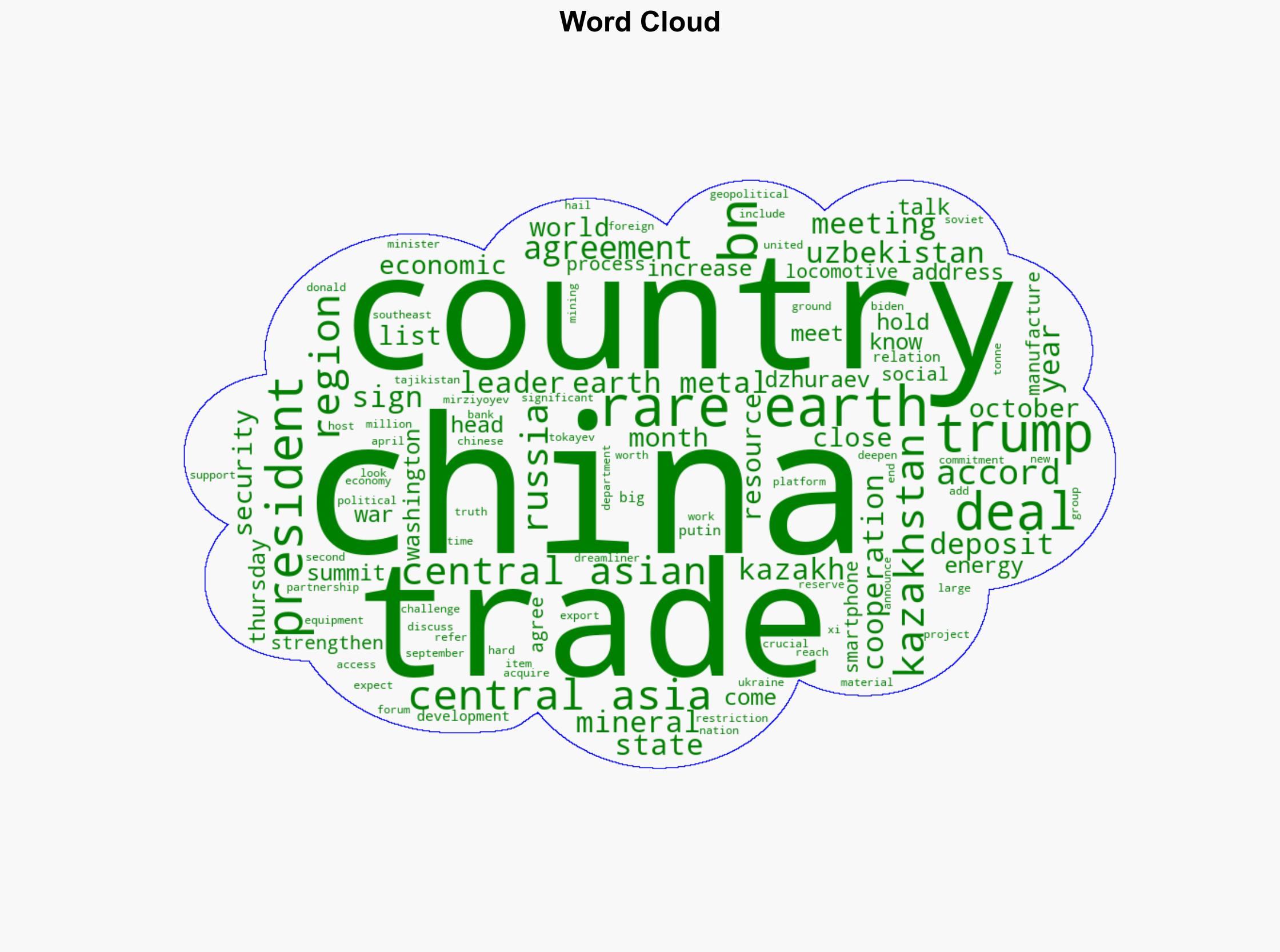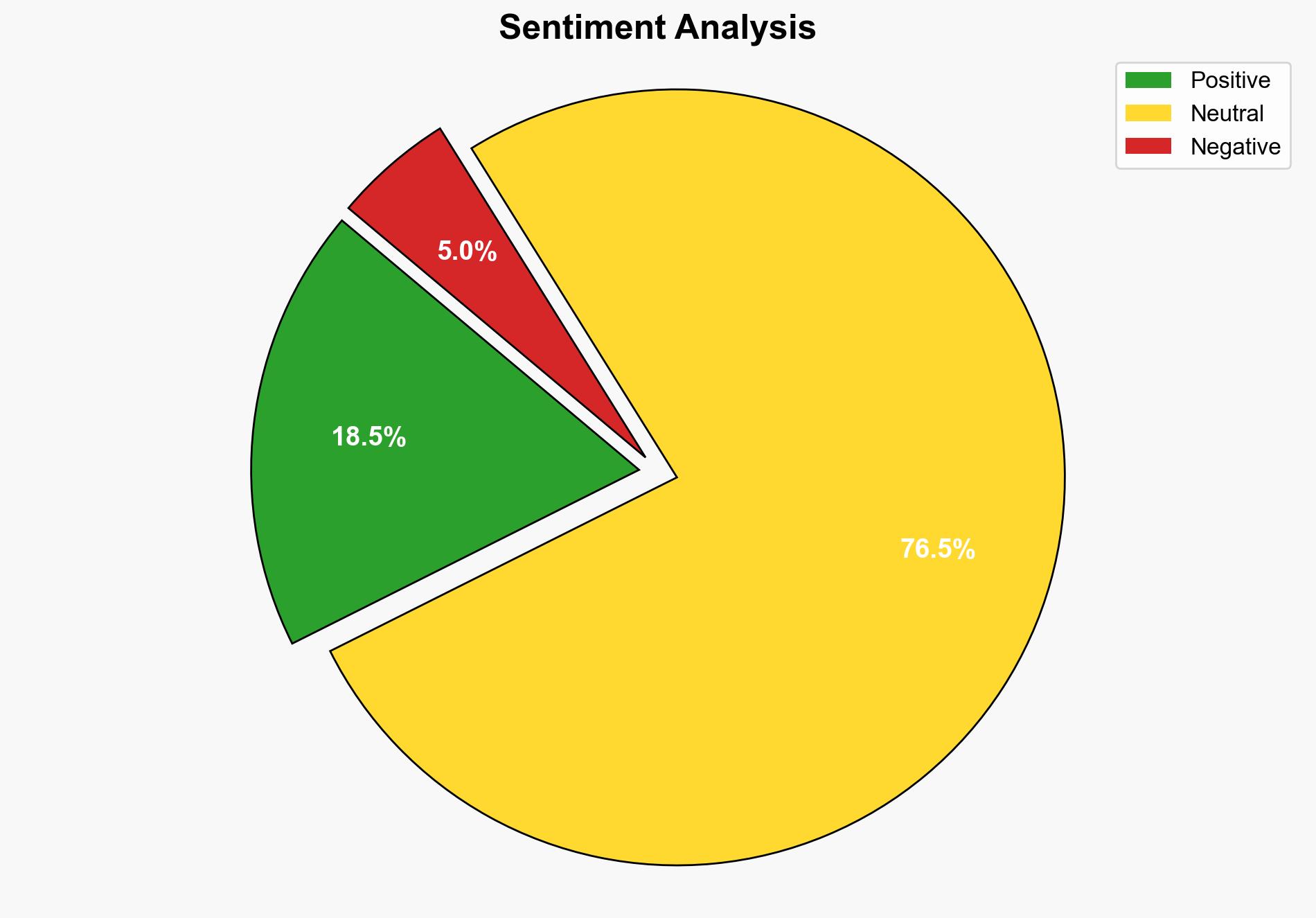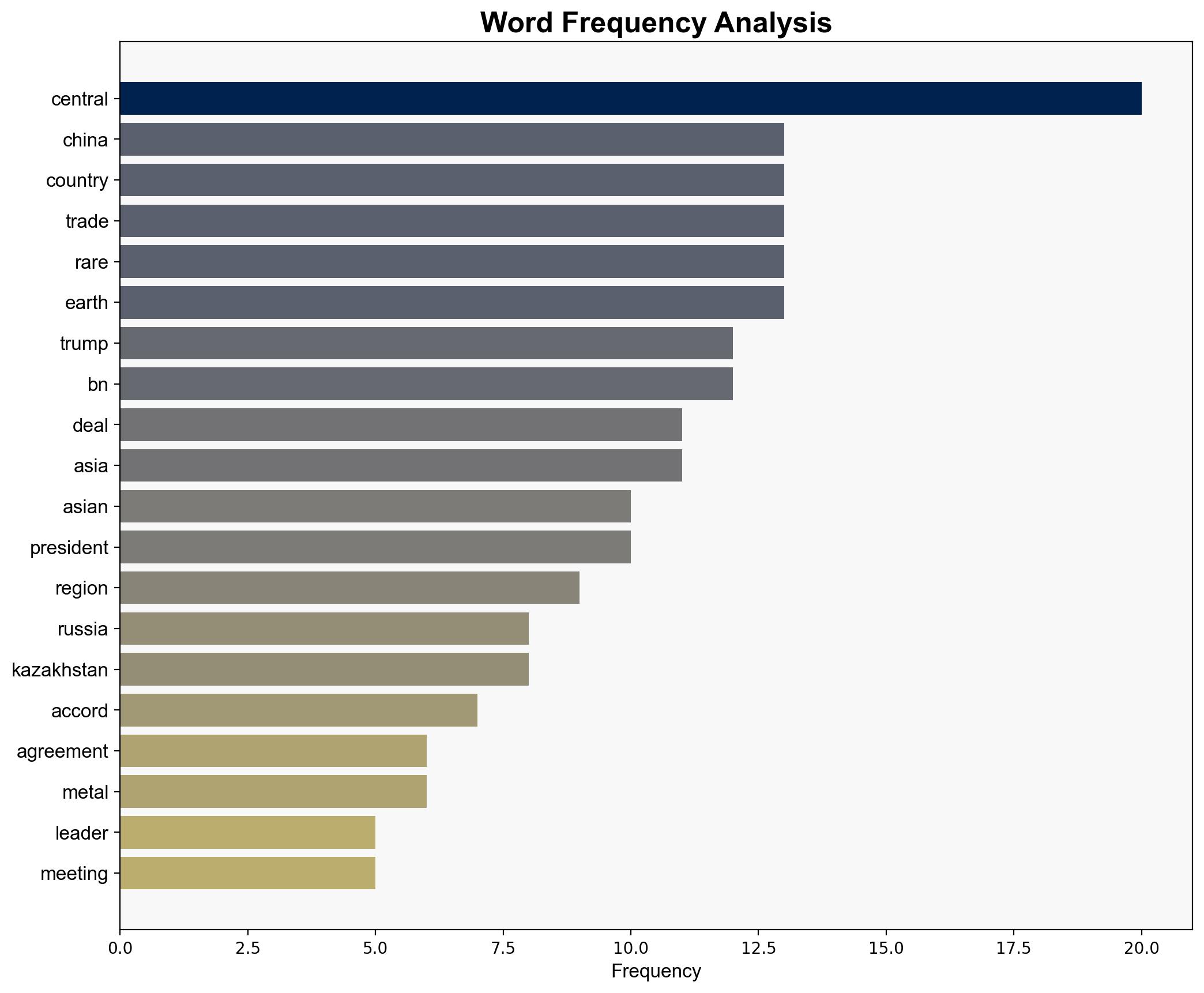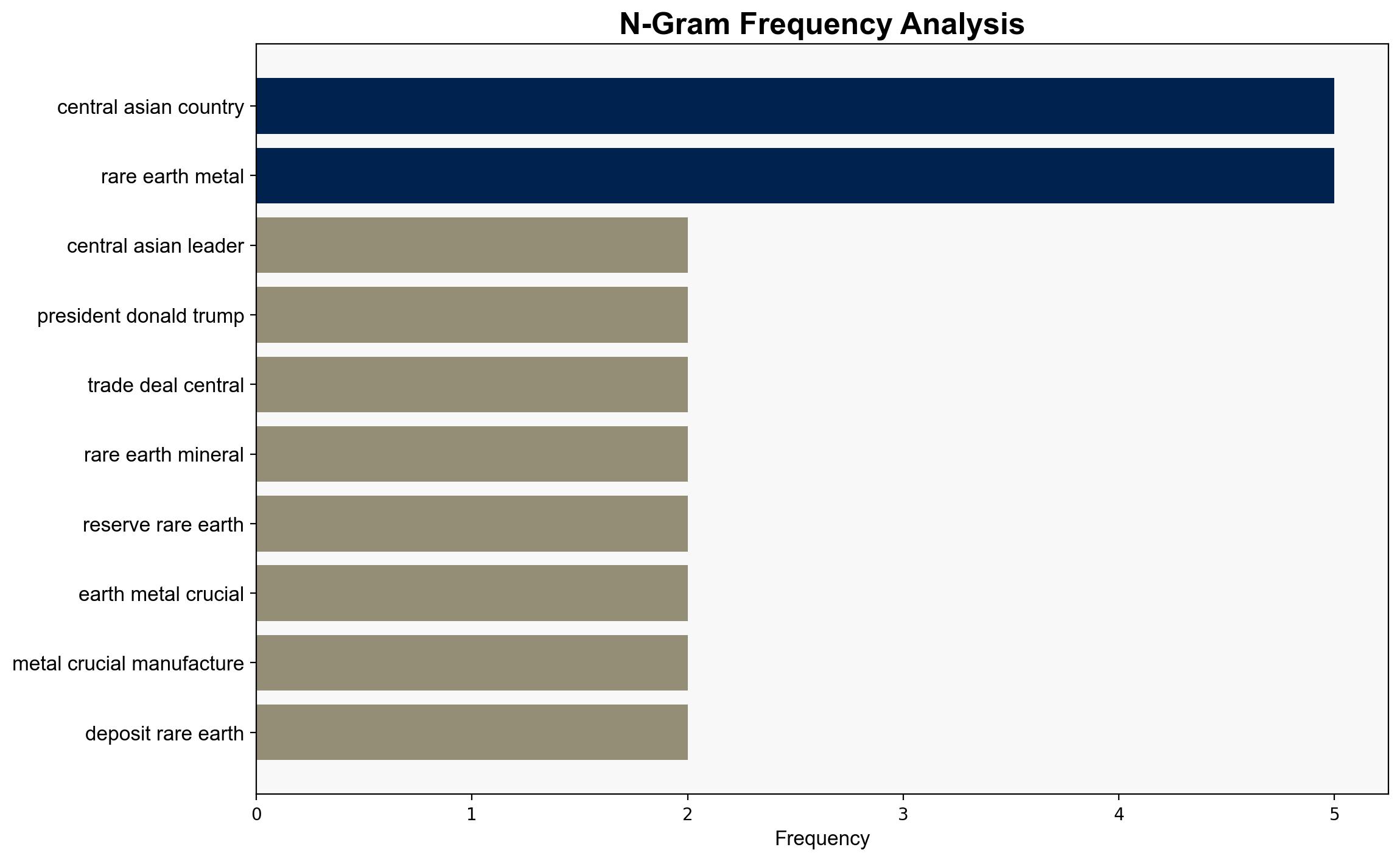Why is Trump hosting C Asia leaders can he compete with Russia China – Al Jazeera English
Published on: 2025-11-06
Intelligence Report: Why is Trump hosting C Asia leaders can he compete with Russia China – Al Jazeera English
1. BLUF (Bottom Line Up Front)
The most supported hypothesis is that Trump’s engagement with Central Asian leaders is primarily driven by economic interests, particularly in securing trade deals involving critical minerals and energy resources. This hypothesis is supported by recent trade agreements and the strategic importance of rare earth minerals. The confidence level in this assessment is moderate due to potential geopolitical motivations. Recommended action includes monitoring further economic agreements and assessing their impact on U.S. strategic interests in the region.
2. Competing Hypotheses
1. **Economic Engagement Hypothesis**: The primary motivation for Trump’s meeting with Central Asian leaders is to secure economic partnerships, particularly in rare earth minerals and energy resources, to bolster U.S. economic interests and create domestic jobs.
2. **Geopolitical Strategy Hypothesis**: The meetings are part of a broader geopolitical strategy to counterbalance Russian and Chinese influence in Central Asia by strengthening U.S. ties and promoting regional stability through economic and security cooperation.
Using the Analysis of Competing Hypotheses (ACH) 2.0, the Economic Engagement Hypothesis is better supported by the evidence, including recent trade deals and the focus on mineral resources.
3. Key Assumptions and Red Flags
– **Assumptions**: It is assumed that economic agreements will lead to significant strategic advantages for the U.S. and that Central Asian countries are willing to pivot away from Russian and Chinese influence.
– **Red Flags**: Potential overestimation of U.S. influence in the region and underestimation of Russia and China’s existing ties. Lack of detailed information on security discussions raises questions about the depth of geopolitical strategy.
4. Implications and Strategic Risks
– **Economic Implications**: Successful trade agreements could enhance U.S. access to critical minerals, impacting global supply chains.
– **Geopolitical Risks**: Increased U.S. presence may provoke counteractions from Russia and China, potentially escalating regional tensions.
– **Cybersecurity and Terrorism**: Strengthened ties could lead to collaborative efforts against cybersecurity threats and terrorism, but may also attract retaliatory actions from adversaries.
5. Recommendations and Outlook
- Monitor the implementation of trade agreements to assess their impact on U.S. economic and strategic interests.
- Engage in diplomatic efforts to ensure Central Asian countries maintain a balanced approach to international partnerships.
- Scenario Projections:
- Best: Strengthened U.S. economic ties lead to increased influence and regional stability.
- Worst: Escalation of tensions with Russia and China, leading to regional instability.
- Most Likely: Moderate economic gains with limited geopolitical shifts.
6. Key Individuals and Entities
– Donald Trump
– Shavkat Mirziyoyev
– Kassym-Jomart Tokayev
– Central Asian national rail companies
7. Thematic Tags
national security threats, cybersecurity, counter-terrorism, regional focus





